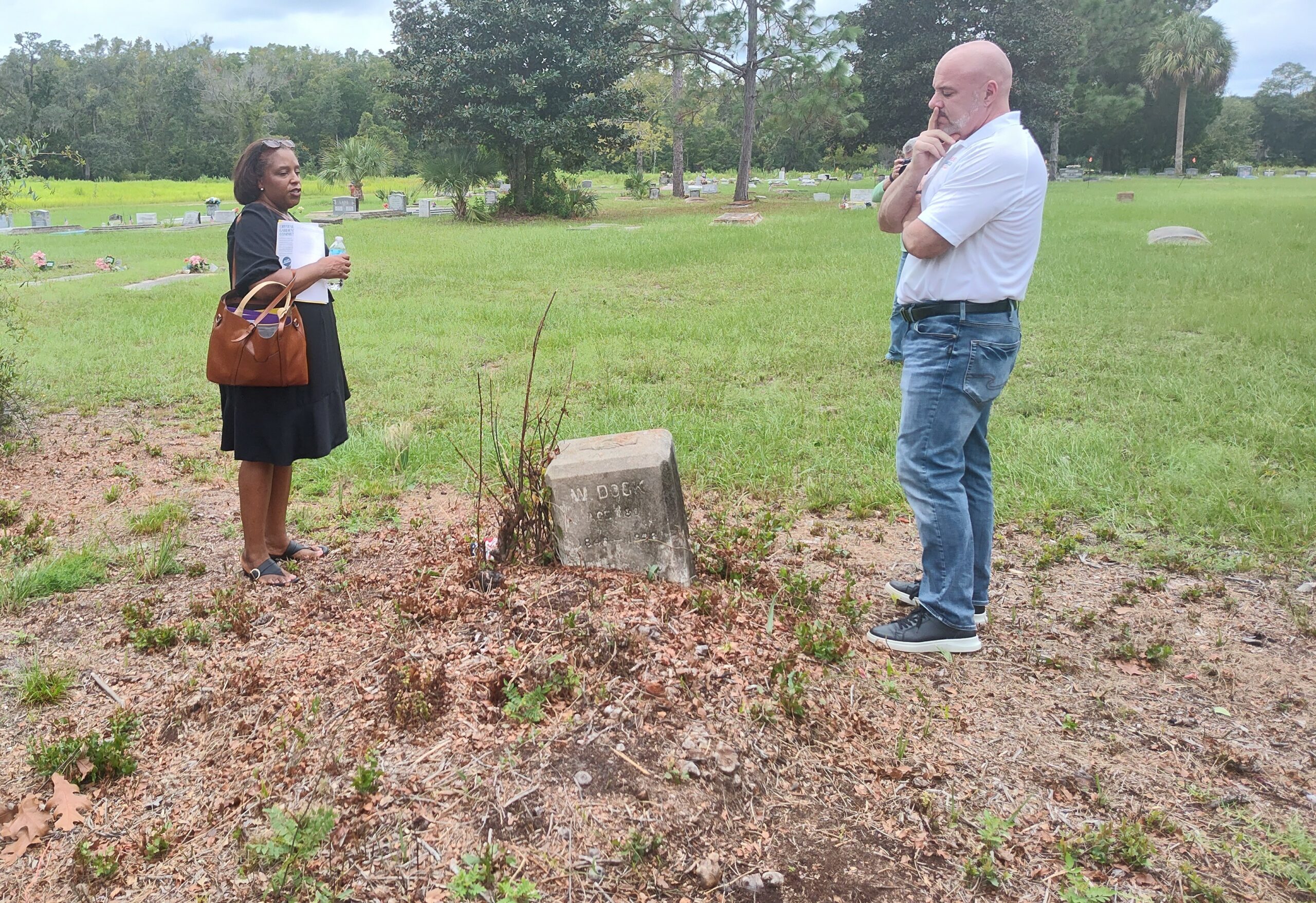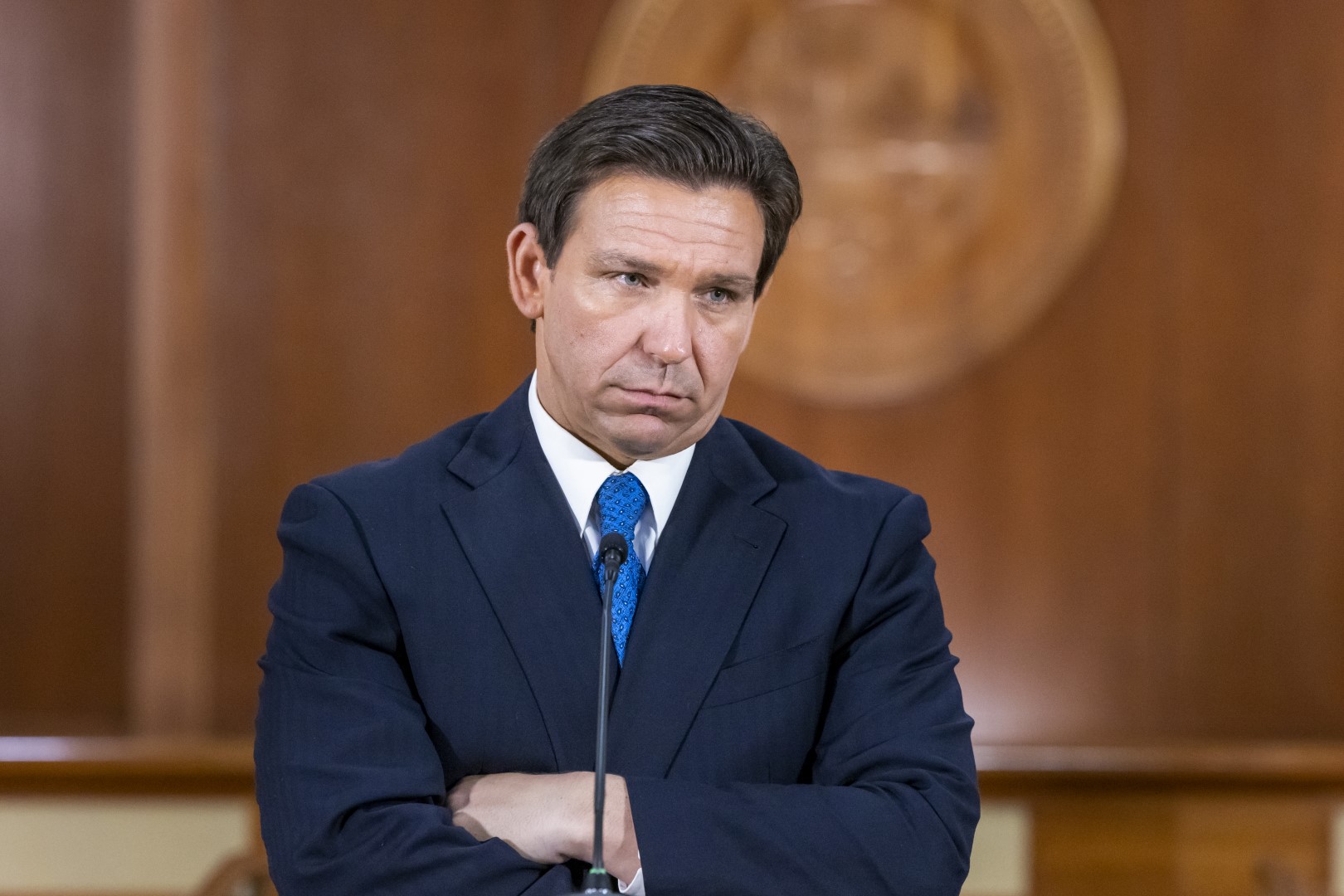Gov. Ron DeSantis is getting into the fight over carbon sequestration in Florida, posting a video blasting legislation that he says supports “a scam.”
The video comes on the eve of a committee hearing on a measure (HB 1063) from Democratic Rep. Lindsay Cross that would establish a multidisciplinary task force to develop a framework for a state-level carbon sequestration program, evaluating how the state can optimize carbon storage in natural and agricultural areas and combat climate change.
DeSantis says the process is a scam and “part of climate ideology.” Cross rejects that notion.
So, what is carbon sequestration? It’s “the process of capturing and storing atmospheric carbon dioxide. It is one method of reducing the amount of carbon dioxide in the atmosphere with the goal of reducing global climate change,” according to the U.S. Geological Survey.
There are two types: Geologic carbon sequestration pressurizes CO2 until it becomes a liquid, and then injects that liquid into porous rock formations for storage; biologic carbon sequestration stores atmospheric carbon in vegetation, soils, woody products and aquatic environments. Supporters of carbon sequestration, particularly biologic, argue that by encouraging plant growth, particularly larger plants such as trees, CO2 can be removed from the atmosphere.
And it’s not just an artificial process, it happens in nature, too. Plants, soils and the ocean act as “carbon sinks” to absorb and store carbon dioxide from the atmosphere. Carbon dioxide is a major contributor to climate change.
But DeSantis wants the bill shot down. in his video, he expressed frustration that a “Republican supermajority” was focusing time on something voters don’t want, arguing instead they should be focusing on property tax or “voter freedom.”
“Don’t indulge the left with carbon sequestration,” he ends in the video.
But the effort is bipartisan. While Cross is carrying the bill in the House, Republican Sen. Ana Maria Rodriguez is sponsoring an identical bill (SB 1148) in the upper chamber. They both carried similar measures in the 2024 Legislative Session, but the effort died before hitting either chamber floor.
This year’s legislation could gain more traction. It removes funding for the task force and instead leaves the option open to seek funding in future fiscal years. It would also add the presence of a geologist on the task force.
“Carbon sequestration is not a hoax, it’s actually happening in our wetlands, our reefs,” Cross told Florida Politics, pointing to natural occurrences already happening. “It’s happening whether we’re thinking about it or not and the purpose of this bill is to understand how to better leverage our natural and agricultural areas and be better positioned for investment from the private market.”
The bill does not seek to engage in carbon sequestration acts, rather to study suitable habitats and land uses for carbon sequestration, along with methodology, metrics and benchmarks.
Tuesday’s hearing in the Natural Resources and Disasters Subcommittee at 12:30 p.m. will be the first of three committee stops for Cross’ bill. But the Senate version from Rodriguez is already moving. It cleared its first committee, Environment and Natural Resources, on an 8-0 vote earlier this month. It heads next to the Appropriations Committee on Agriculture, Environment, and General Government, followed by Rules, though hearings are not yet set on the bill in those committees.
In years past, DeSantis’ thumb on the scales could have meant certain death for the bills. But this year lawmakers have reasserted themselves as a coequal branch of government, pushing back on DeSantis over his past budget vetoes and his plans for immigration enforcement. With that in mind, Tuesday’s hearing on the bill may offer insight into whether DeSantis’ opposition still carries weight.
Post Views: 0

 Entertainment8 years ago
Entertainment8 years ago
 Politics8 years ago
Politics8 years ago
 Entertainment8 years ago
Entertainment8 years ago
 Entertainment8 years ago
Entertainment8 years ago
 Tech8 years ago
Tech8 years ago
 Tech8 years ago
Tech8 years ago
 Tech8 years ago
Tech8 years ago
 Politics8 years ago
Politics8 years ago











